By Dr. Miemie Winn Byrd
In a significant step towards bolstering both national and regional security, seven dedicated Fellows from Malaysia have drafted a comprehensive Women, Peace, and Security (WPS) National Action Plan (NAP). This initiative, undertaken during their tenure at the Comprehensive Security Cooperation course (CSC 24-2) at the Daniel K. Inouye Asia-Pacific Center for Security Studies (DKI APCSS), showcases Malaysia’s commitment to upholding the principles enshrined in United Nations Security Council Resolution (UNSCR) 1325.
Guided by Brig. Gen. Fadzillah binti Abdullah, Director General of Defence Training of the Malaysian Armed Forces, and DKI APCSS’ faculty mentors, Dr. Miemie Winn Byrd and Dr. Belinda Yeomans, the Malaysian Fellows, worked tirelessly to develop a robust framework to address the multifaceted issues surrounding women’s equality and security.
According to Dr. Byrd, “Their unwavering dedication to this cause highlights the profound understanding that women’s security is intrinsically linked to national and regional security. The WPS NAP they crafted not only seeks to protect and empower women but also enhances the overall stability and security of the nation and its neighboring regions.”
A Strategic Commitment to UNSCR 1325
UNSCR 1325, adopted in 2000, recognizes the disproportionate impact of armed conflict on women and girls. It emphasizes the critical role of women in conflict prevention, resolution, and peacebuilding. By drafting the WPS NAP, the Malaysian Fellows are ensuring that Malaysia aligns with these international standards and fulfills its obligations under the resolution.
The draft plan focuses on enhancing women’s participation in governance, economic, and security sectors. It also addresses the protection of women and girls from gender-based violence, the promotion of women’s rights and leadership, and the integration of gender perspectives into all aspects of government policy-making processes. These objectives reflect a holistic approach to security. Sustainable peace, stability, and prosperity are unattainable without addressing the specific needs and contributions of women.
Inspirational Dedication and Collaborative Effort
“The Fellows’ dedication to this initiative was nothing short of inspiring,” said Dr. Belinda Yeoman. “Their collaborative effort, marked by rigorous research, extensive consultations, and strategic planning, culminated in a draft plan that is both comprehensive and actionable. The support and guidance from General Fadzilla played a crucial role in shaping their approach. This ensured the plan is aligned with Malaysia’s broader security goals.”
Linking Women’s Security to National and Regional Stability
The Fellows’ work is grounded in the understanding that women’s security is a fundamental component of human security. They recognized that when women are safe, empowered, and active participants in their communities, it leads to stronger, more resilient societies. This, in turn, contributes to national stability and has positive ripple effects on regional security.
By addressing issues such as gender-based violence, economic inequality, and limited access to education and healthcare, the WPS NAP aims to create an environment where women can thrive. This approach not only enhances the security and well-being of women but also strengthens the social fabric of the nation, making it more resilient to internal and external threats.
Looking Ahead: Implementation and Adoption
The Fellows will return to Malaysia with their draft WPS NAP, ready to present it to various government ministries for review and input. The team plans to submit it to parliament for approval by 2025. The plan’s adoption and implementation by 2026 will require resource allocation and sustained commitment from various stakeholders, including government agencies, civil society organizations, and international partners. The successful implementation of the WPS NAP will mark a significant milestone in Malaysia’s journey towards achieving comprehensive security and fulfilling its international commitments.
The Malaysian Cohort’s efforts to draft the Women, Peace, and Security National Action Plan reflect a deep commitment to enhancing both national and regional security through the empowerment and protection of women. Their work serves as a testament to the critical link between gender equality and sustainable peace, setting a powerful example for other nations to follow.
Malaysian cohort presented their Women, Peace, and Security National Action Plan draft to DKI APCSS Director Pete Gumataotao.



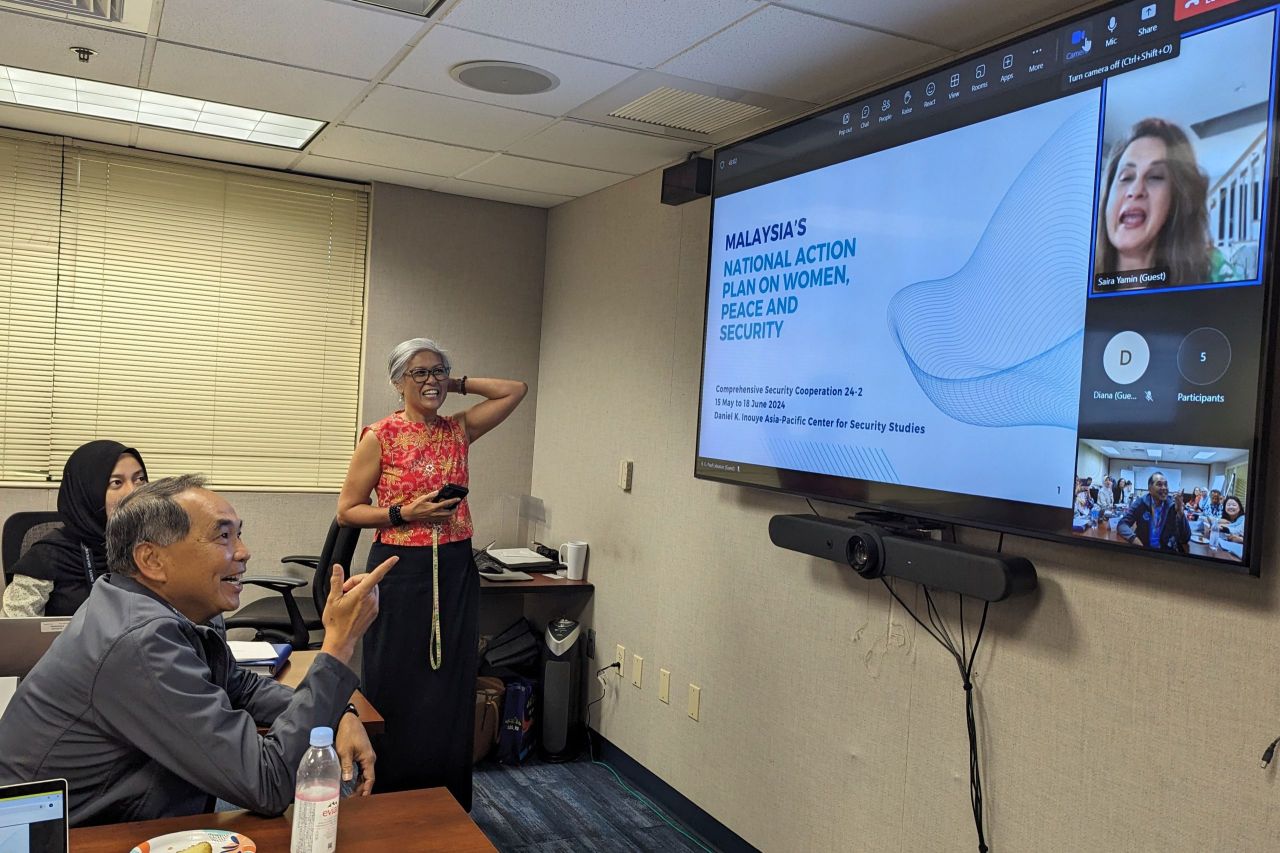
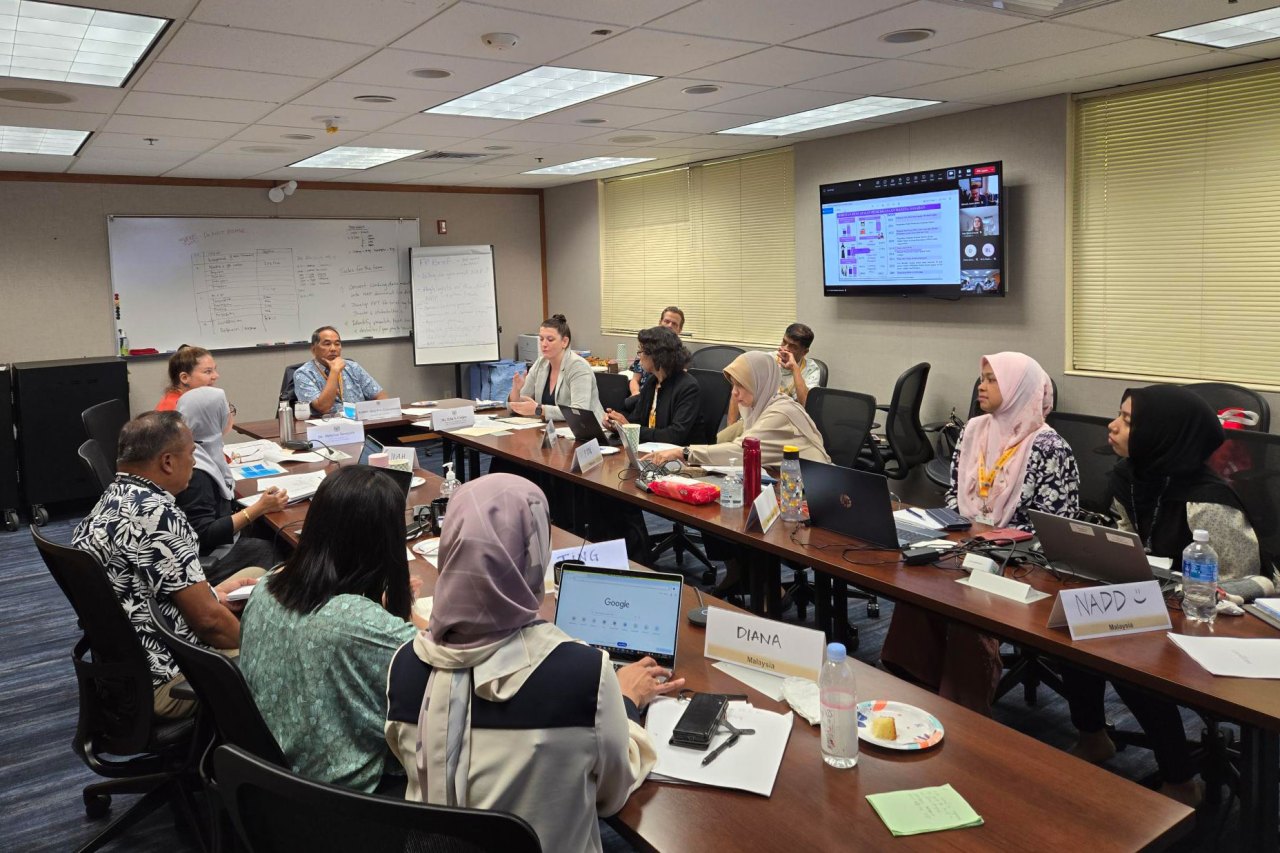
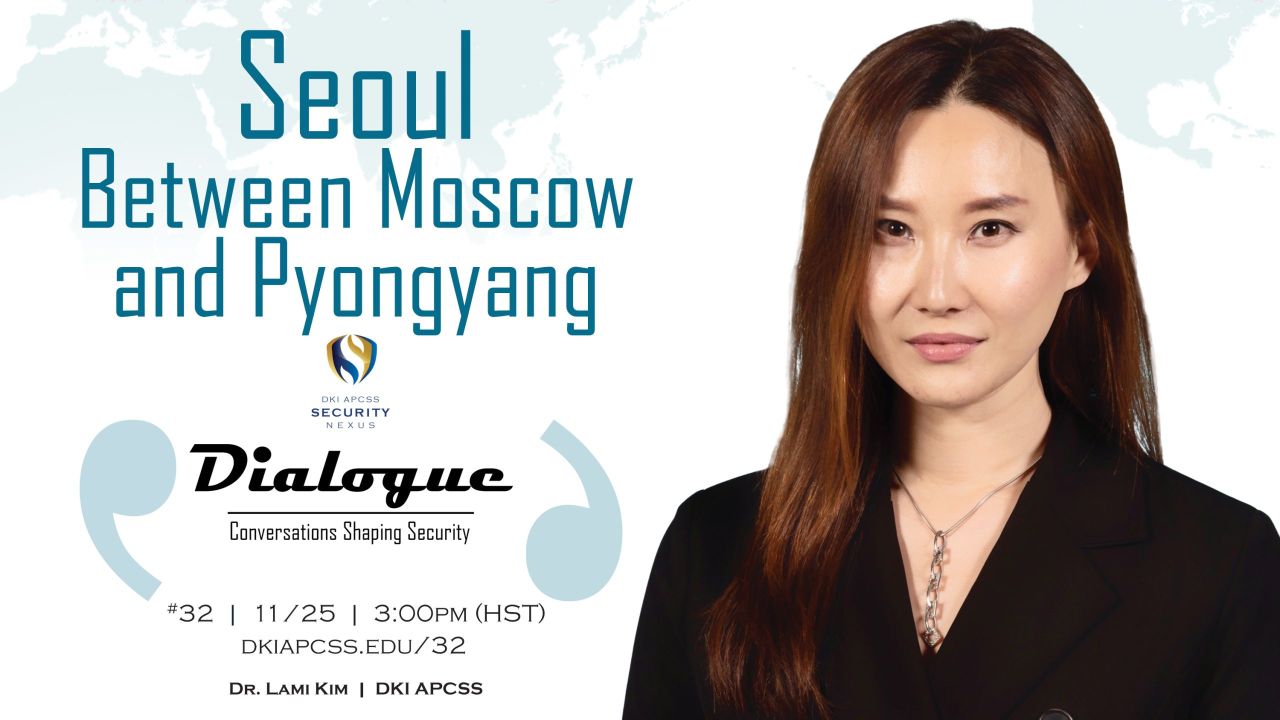
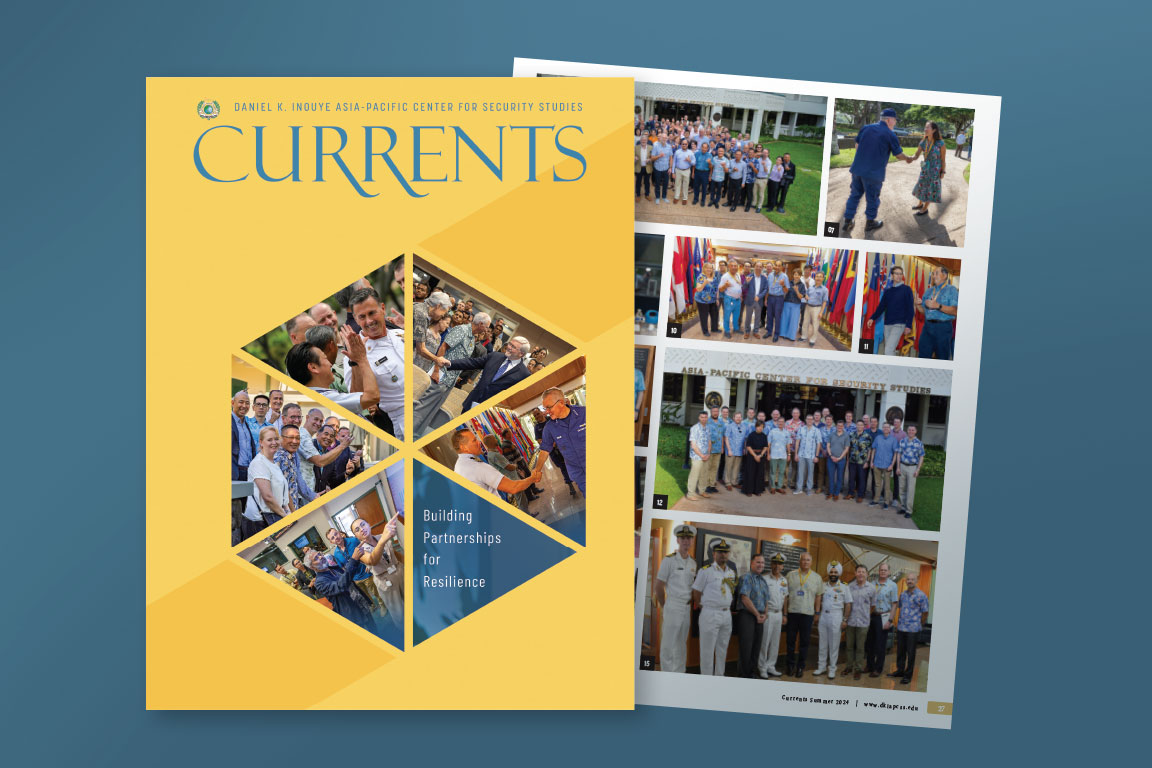
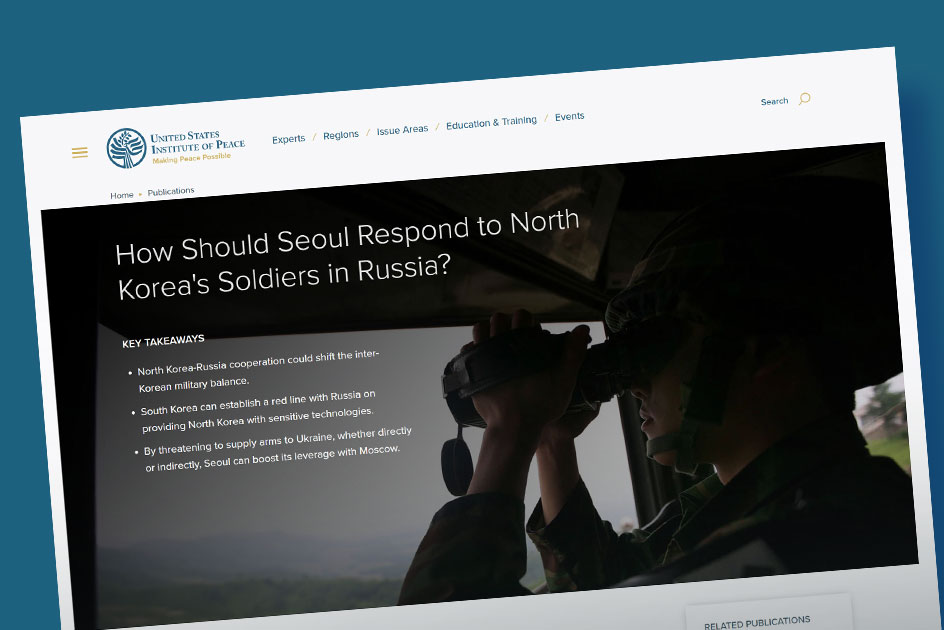




Leave A Comment